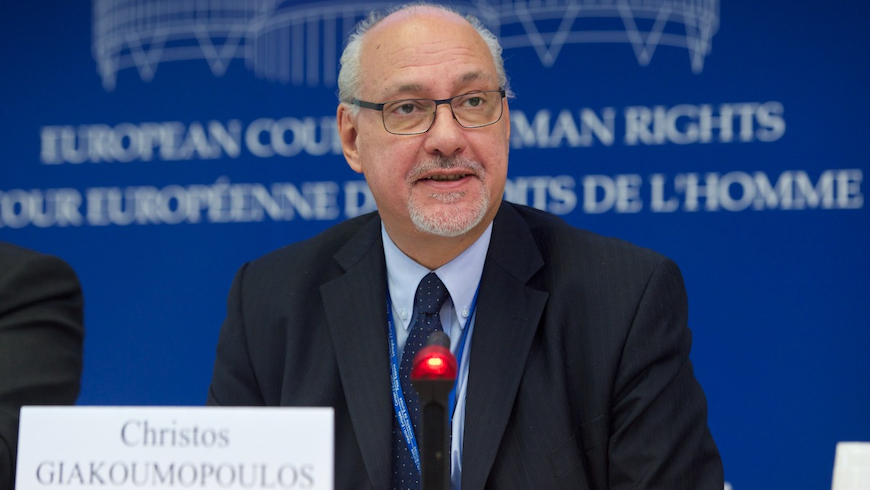Welcoming remarks by Christos Giakoumopoulos
High-level Conference on the harmonisation of case law and judicial practice
29 September 2017, Athens
Mr Minister,
Dear President of the Council of State,
Honourable judges,
Ladies and gentlemen, distinguished participants
It is an honour for me to open this high-level conference, and to welcome you all on behalf of the Council of Europe. I would like to thank the Council of State of Greece and you President Sakellariou for being our host today.
Today’s event is the first one of that scale and geographical scope which is organised by the Council of Europe to discuss a topic that is increasingly recognised as crucial for the proper functioning of the judiciary.
Harmonisation of case law and approaches to the interpretation of provisions of domestic norms and international treaties, consistency in jurisprudence of national courts and international bodies are in growing demand nowadays. At the international level, the accumulated volume of jurisprudence of international human rights bodies makes it difficult to navigate without special tools.
At a national level, inconsistency of judicial practice undermines the trust to the judiciary in the society, negatively affecting the respect to judicial decisions. Legal certainty, which is a logical consequence of harmonised judicial approaches, is one of the pillars of the right to judicial protection and the right to a fair trial guaranteed by Article 6 of the ECHR. This right is probably central to all other rights guaranteed by the ECHR. The European Court of Human Rights found violation of Art.6 as a consequence of incoherent judicial practice in cases against several member States.
When faced with the question of coherence of its own case law, the European Court of Human Rights came up with some interesting practices, which turned to be successful. For example, they created a special position of a Jurisconsult and an elaborate system of identification of human rights issues.
At a national level, actions are taken by states to address similar problems. A range of possible solutions have been considered. One of them could be strengthening case law departments in courts of different levels.
In addition, a system of “human rights tagging” – i.e., identification of human rights issues once they arrive to a court – may become a worthy instrument.
Today we will be looking at an inter-judicial dialogue as a pre-condition for the creation of a “harmonisation mechanism”, and at various elements that can strengthen such a mechanism. Ensuring the dialogue between the ECtHR and national courts was one of the recommendations of the Brussels Declaration adopted by the 47 member states in 2015 and is one of the main objectives of Protocol No 16 to the ECHR. A dialogue between national courts of member states is being developed through the Superior Court Network, acting under the auspices of the ECtHR. At the same time, a larger and perhaps less formal dialogue is possible, that would engage not only judges of the highest courts, but also appeal courts and case law departments of courts of all levels. This would allow the Council of Europe to promptly receive signals from national judiciaries on the areas where our co-operation activities, might be useful.
International judicial bodies, like the Court, not only struggle to achieve consistency in the interpretation of the respective treaties, but also look at each other’s arguments in addressing legal issues in order to create an element of predictability for the “end user” of these instruments – the States and their citizens.
Likewise, national courts look at approaches applied by their peers in other CoE member states when they deal with contentious legal issues in the field of human rights and also beyond. This is precisely what this Conference aims at: creating a forum for enhanced communication among national judicial institution which may include in due course lawyers and prosecutors, as well as National Human Rights Institutions.
The CoE has already done a lot to support judicial exchange at regional and national levels through its co-operation projects. Today we shall start the discussion about the harmonisation of case law and judicial practice and we intend to move ahead with a set of proposals. I would thus encourage you to share your experiences and your ideas and to come up with novel and creative proposals on the topic.
I wish you a fruitful discussion.
Thank you
-o0o-




